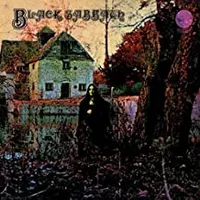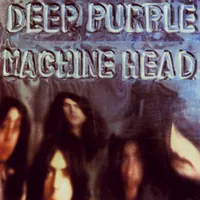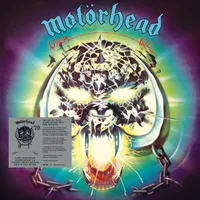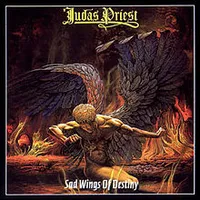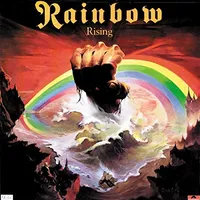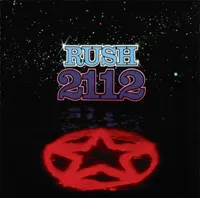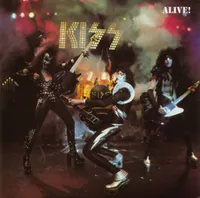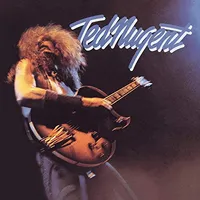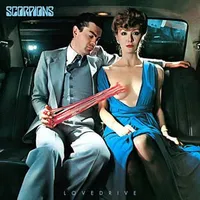70s metal: a guide to the albums that started it all
As the 70s dawned, the folk with the electric guitars realised that rock could be harder, dirty, louder and faster than before – here's a guide to the albums that shaped heavy metal as we know it
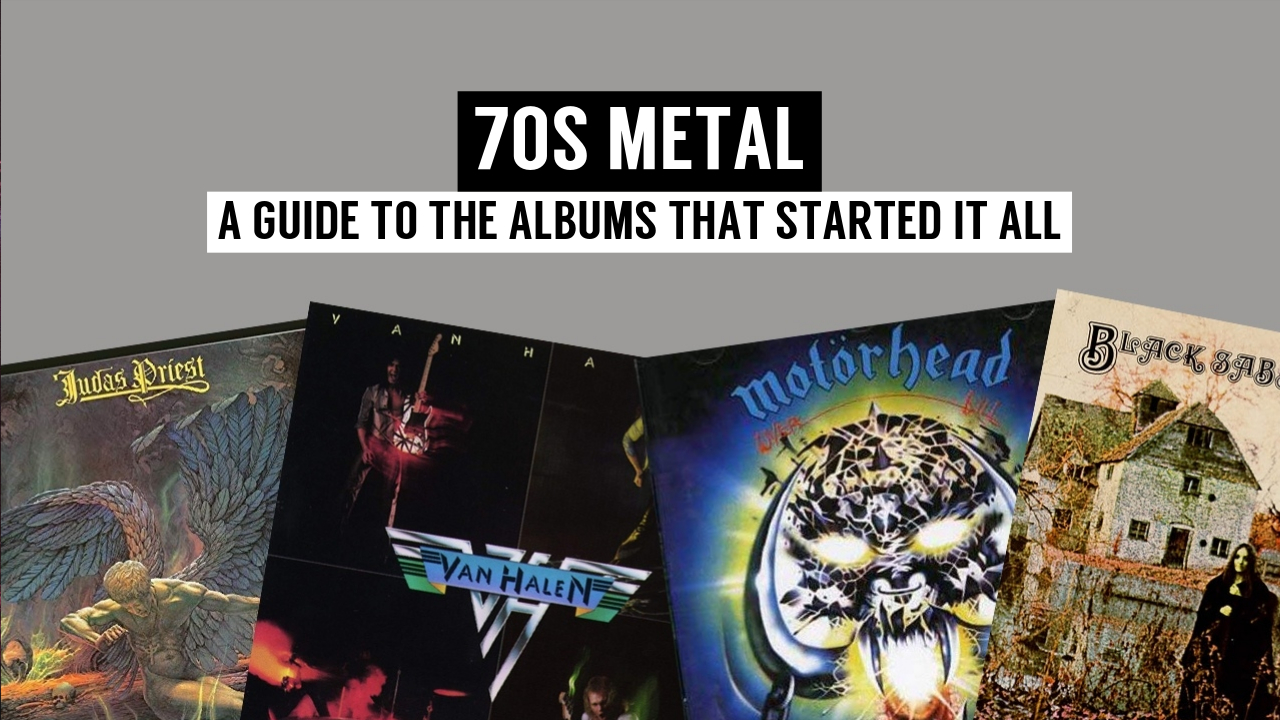
The 70s was the era that defined everything we know, love and even laugh at when it comes to heavy metal.
It was a glorious time when the rules didn’t exist and a free-spirited attitude allowed for the birth of a genre. Born out of the hard-edged sound that emerged at the end of the 1960s from such bands as Cream and The Who, it was an altogether darker expression of traditional blues themes.
Not that anyone called it ‘metal’ back then. It was ‘heavy rock’, or hard rock – a fusion of blues, psychedelia and biker attitude. And, as with the birth of any musical form, its diversity was almost breathtaking. Nobody would call Led Zeppelin, Slade, AC/DC, UFO or the Stooges true metal bands, would they? But all played crucial roles in the way that metal began to take shape.
Our understanding of the music over here was born of a feeling that it belonged to an underclass; those drawn together by a devotion to loud guitars, macho image and something far removed from the trends of disco and punk, which seemed to dominate the mainstream.
Fans adopted a uniform – denim and leather, covered in a myriad of patches of band logos, which came to be known as the humble battle jacket – and they grew greasy, lanky locks, not to mention facial hair (wherever possible). The fantasy element was crucial, and the more the mainstream laughed, the greater the dedication. It wasn't perfect – there was often more than a slight misogynist accent to the lyrics – but it was as serious as a Carry On film.
Perhaps the most important part of 1970s metal were the fans. Whereas in America loud rock’n’roll was part of growing up, in the UK it was the province of dysfunctional, anti-social teenagers. So, Black Sabbath, Motörhead, Judas Priest and Status Quo became the focal points for people’s lives – go to a gig and escape the daily drudge. And because they were ignored by the chart-obsessed in Britain, fans also adopted cult American bands, from Aerosmith and Kiss to – gulp! – Journey and Styx. It all seemed to fit together so neatly back then.
To be honest, there’s no real definition of 1970s metal, because fans embraced such a wide church, and that’s exactly what it was – a religion. That’s what makes the era so special. It was a pioneering era, accentuated by naivety and innocence, when giants were born.
And, let’s face it, the great ‘metal’ bands of that time still reign supreme.

Black Sabbath - Black Sabbath (Sanctuary, 1970)
You can trust Louder
The album that sums up not just 70s metal, but the appeal of the whole genre. The title track is the embodiment of everything for which metal stands. Ominous, brooding, mysterious, epic, it's the closest that any song could possibly get to representing heavy metal with its stark, raging distortion of the blues filtered through a British, working class framework. The fact that the production values are virtually non-existent adds to the timeless quality of songs like The Wizard and N.I.B. This was genius through simplicity, a monument to innovation through lack of resources.
Deep Purple - Machine Head (Harvest, 1972)
It’s got Highway Star, Space Truckin' and, in Smoke On The Water, arguably the ultimate guitar riff. Deep Purple Mk II’s finest hour remains a testament to the way that metal can mix evocative atmosphere, stunning musicianship and crushed velvet vocals. Its rapacious mix of virtuoso moments and force of will has inspired countless bands over the last 30 years. Each song has every last drop of inspiration wrenched out, and you're never left in any doubt that this album showcases one of the all-time great bands at the height of their very considerable powers.
Motörhead - Overkill (Sanctuary, 1979)
Motörhead were the asymmetric cousins of Hawkwind – only dirtier, nastier and more rock’n’roll than Lemmy’s former employers. Overkill convinced a slightly sceptical metal audience that this trio were essential. Far removed from the more mannered, uniform adversity of so many of their peers, Motörhead just cranked up the volume and let rip. It was high speed, in all senses of the term, and set up Lemmy, ‘Fast’ Eddie Clarke and ‘Philthy Animal’ Taylor as icons for the iconoclasts. No Class, Damage Case, Overkill, Metropolis – masterworks all.
Judas Priest - Sad Wings Of Destiny (Snapper, 1976)
It was with this album that Priest found their range and inclination and became one of the premier cornerstones of metal. After tripping over their own talents with Rocka Rolla, the band came of age here. The twin guitars of Glenn Tipton and KK Downing locked with both barrels firing, while Rob Halford’s voice soared and burnt. Victim Of Changes, The Ripper, Dreamer Deceiver, Tyrant and Genocide still send cascades of fantastic shivers down the spine. The album wasn’t just a landmark for the band, but also for the entire genre. It became a template for much that followed.
Van Halen - Van Halen (Warners, 1978)
By the end of the decade, metal was in dire need of a fresh impetus – and it got just that from Van Halen. Eddie Van Halen re-invented guitar heroics with his two-handed tapping technique for a new generation of wannabes. David Lee Roth brought humour and showmanship, and every track on their debut was a masterpiece. Van Halen won their right to spearhead a new era in metal with an album that was like nothing anyone had heard before. Kiss may have been the self-proclaimed ‘hottest band in the world’, but in 1978 these guys were the coolest bunch on the planet.
Rainbow - Rising (Polydor, 1976)
Wizards, rainbows, mystical women. They were all here on the album that put Rainbow firmly on the map. Ritchie Blackmore’s guitar histrionics found an ideal soulmate in singer Ronnie James Dio, a man at home in a medieval world of cabbages and kings... If Stargazer was the tour de force, then Tarot Woman, Starstuck and Run With The Wolf also struck telling blows for fantasy. Despite the pretensions of its lyricism and musical aspirations, it was delivered with such conviction and, yes, genius that no self-respecting metal fan would dare laugh. Even now.
Rush - 2112 (Mercury, 1976)
A concept album based on the writings of obscure right-wing author Ayn Rand and performed by three Canadians, one of whom – drummer Neil Peart – sported a silly moustache. Yep, a recipe for... sheer metal brilliance. Not only was this the album that broke Rush to an wider audience, but such was the bravura, technique and self-assured perspective that 2112 remains almost untouchable as the pinnacle of conceptual metal. Some interpreted this as proof that Rush held staunch right-wing opinions, some took it simply as artistry turned up to 11.
KISS - Alive (Casablanca 1975)
Kiss became a cultural phenomenon with this double live album. It was a last throw of the dice for the band, but it worked. Brilliantly, in fact. Always a huge live draw, they cunningly brought together all the finest anthems from three previous studio records, and let rip before thousands of ecstatic fans. It sounded utterly compulsive. No wonder generations of kids took to standing in front of mirrors, wearing their mum’s make-up and waving clenched fists while hollering along to Rock And Roll All Nite or Strutter. How many of them went on to their own piece of stardom?
Ted Nugent - Ted Nugent (Epic, 1975)
“If it’s too loud, you’re too old!” declared the Nuge, as he destroyed eardrums across the globe on this, his solo debut. And it more than lived up to expectations. After carving out a niche with The Amboy Dukes, Ted Nugent threw away all thoughts of subtlety and cranked it up louder than everything else. This is an album dripping with classic moments, from Stranglehold to Stormtroopin’ and Motor City Madhouse. No prisoners were taken, as Nugent set out to prove he was the craziest mutha ever to wield a Gibson Byrdland guitar in anger – he was, too.
Scorpions - Lovedrive (Mercury, 1979)
Completely re-invigorating their sound and style, Germany’s greatest ever metal band found their niche with this remarkable record. You could almost smell the testosterone as they raced through the gears with macho acuity on Another Piece Of Meat, Loving You Sunday Morning and Can’t Get Enough. Despite the more obviously laid back material such as Holiday and Coast To Coast, Scorpions built a reputation for ham-fisted soft porn lyricism. They epitomised heavy metal clichédom, and we loved them for it. They also became the first Euro metal superstars.
Sign up below to get the latest from Metal Hammer, plus exclusive special offers, direct to your inbox!
Malcolm Dome had an illustrious and celebrated career which stretched back to working for Record Mirror magazine in the late 70s and Metal Fury in the early 80s before joining Kerrang! at its launch in 1981. His first book, Encyclopedia Metallica, published in 1981, may have been the inspiration for the name of a certain band formed that same year. Dome is also credited with inventing the term "thrash metal" while writing about the Anthrax song Metal Thrashing Mad in 1984. With the launch of Classic Rock magazine in 1998 he became involved with that title, sister magazine Metal Hammer, and was a contributor to Prog magazine since its inception in 2009. He died in 2021.
